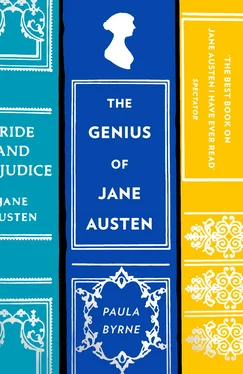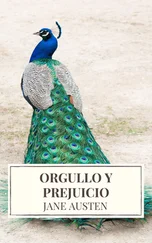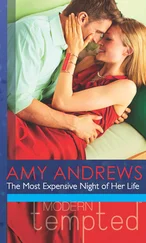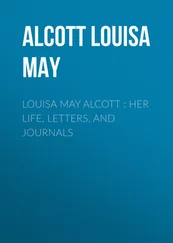Of our three evenings in Town one was spent at the Lyceum & another at Covent Garden; – the Clandestine Marriage was the most respectable of the performances, the rest were Sing-song & trumpery, but did very well for Lizzy & Marianne, who were indeed delighted; but I wanted better acting. – There was no Actor worth naming. – I beleive the Theatres are thought at a low ebb at present. ( Letters , p. 230)
Austen’s heart-felt wish for ‘better acting’, or, in Edmund Bertram’s words, ‘real hardened acting’, was soon to be realised.
Drury Lane had indeed reached its lowest ebb for some years when it was rescued by the success of a new actor, Edmund Kean (1787–1833), who made his electrifying debut as Shylock in January 1814. The story of his stage debut has become one of the most enduring tales of the theatre. The reconstructed Drury Lane Theatre, rebuilt after it was destroyed by fire in 1809, was facing financial ruin, greatly exacerbated by the ruinous management of R. B. Sheridan, when a strolling player from the provinces, Edmund Kean, was asked to play Shylock. 35Kean, in his innovative black wig, duly appeared before a meagre audience, mesmerising them by his stage entrance. At the end of the famous speech in the third act, the audience roared its applause. ‘How the devil so few of them kicked up such a row’, said Oxberry, ‘was something marvelous.’ 36Kean’s mesmerising appearance on the stage was given the seal of approval when Hazlitt, who after seeing him on the first night, raved: ‘For voice, eye, action, and expression, no actor has come out for many years at all equal to him.’ 37
The news of Kean’s conquest of the stage reached Jane Austen, and in early March 1814, while she was staying with Henry during the negotiations for the publication of Mansfield Park , she made plans to see the latest acting sensation:
Places are secured at Drury Lane for Saturday, but so great is the rage for seeing Keen [ sic ] that only a third & fourth row could be got. As it is in a front box however, I hope we shall do pretty well. – Shylock. – A good play for Fanny. She cannot be much affected I think. ( Letters , p. 256)
The relatively short part of Shylock is thus considered to be a suitably gentle introduction to Kean’s powerful acting for the young girl. But Austen’s own excitement is barely contained in her description of the theatre party: ‘We hear that Mr Keen [ sic ] is more admired than ever. The two vacant places of our two rows, are likely to be filled by Mr Tilson & his brother Gen. Chownes.’ Then, almost as if she has betrayed too much pleasure in the absence of her sister, she writes: ‘There are no good places to be got in Drury Lane for the next fortnight, but Henry means to secure some for Saturday fortnight when You are reckoned upon’ ( Letters , p. 256).
Another visit to see Kean was intended, and Henry’s acquaintance with the theatre world again emphasised. The party went to Drury Lane on the evening of 5 March, attending the eighth performance of The Merchant of Venice . Austen’s initial response to the latest acting phenomenon was calm and rational: ‘We were quite satisfied with Kean. I cannot imagine better acting, but the part was too short, & excepting him & Miss Smith, & she did not quite answer my expectations, the parts were ill filled & the Play heavy’ ( Letters , p. 257). Hazlitt, too, frequently complained that one of the problems of the star system was filling up the smaller parts. In his review of The Merchant of Venice , he was only grudgingly respectful of the minor roles.
Kean was still very much on Austen’s mind, for in the same letter, in the midst of a sentence about Henry Crawford and Mansfield Park , she unexpectedly reverted to the subject of him with greater enthusiasm: ‘I shall like to see Kean again excessively, & to see him with You too; – it appeared to me as if there was no fault in him anywhere; & in his scene with Tubal there was exquisite acting’ ( Letters , p. 258).
Jane Austen was conscious of the dramatic demands of Shylock’s scene, which required the actor to scale, alternately, between grief and savage glee. Her singling out of this particular scene was no doubt influenced by the reports of the opening night, where the audience had been powerless to restrain their applause. Kean’s biographer noted the subtle intricacies of the scene in the third act ending with the dialogue between Shylock and Tubal:
Shylock’s anguish at his daughter’s flight, his wrath at the two Christians who had made sport of his suffering, his hatred of Christianity generally, and of Antonio in particular, and his alternations of rage, grief and ecstasy as Tubal enumerated the losses incurred in the search of Jessica – her extravagances, and then the ill-luck that had fallen on Antonio; in all this there was such originality, such terrible force, such assurance of a new and mighty master, that the house burst forth into a very whirlwind of approbation. 38
For many critics, the greatest quality of Kean’s as Shylock was his ability to change emotional gear at high speed, to scale the highest points and the lowest. Thus Hazlitt:
In giving effect to the conflict of passions arising out of the contrasts of situation, in varied vehemence of declamation, in keenness of sarcasm, in the rapidity of his transitions from one tone and feeling to another, in propriety and novelty of action, presenting a succession of striking pictures, and giving perpetually fresh shocks of delight and surprise, it would be difficult to single out a competitor. 39
Kean’s acting style was hereafter characterised as impulsive, electric and fracturing. ‘To see him act’, Coleridge observed famously in his Table Talk , ‘is like reading Shakespeare by flashes of lightning.’ 40
In contrast to her reaction to Kean, Jane Austen was disappointed with the performance of her old favourite Elliston. The programme that night included him in an oriental ‘melodramatic spectacle’ called Illusion; or The Trances of Nourjahad . The Austen party left before the end:
We were too much tired to stay for the whole of Illusion (Nourjahad) which has 3 acts; – there is a great deal of finery & dancing in it, but I think little merit. Elliston was Nourjahad, but it is a solemn sort of part, not at all calculated for his powers. There was nothing of the best Elliston about him. I might not have known him, but for his voice. ( Letters , pp. 257–58)
Henry Crabb Robinson also saw Elliston as Nourjahad and wrote in his diary that ‘his untragic face can express no strong emotions’. Robinson admired Elliston as a ‘fine bustling comedian’, but thought that he was a ‘wretched Tragedian’. 41Austen’s observation that Elliston’s brilliance lay especially in his comic powers was a view shared by his critics and admirers. Charles Lamb thought so too, but was afraid to say so when Elliston recounted how Drury Lane was abusing him. Lamb recorded: ‘He complained of this: “Have you heard … how they treat me? they put me in comedy .” Thought I – “where could they have put you better?” Then, after a pause – “Where I formerly played Romeo, I now play Mercutio.”’ 42
Austen’s ‘best Elliston’ was altered from his glory days at Bath and his early promise at Drury Lane as a result of physical deterioration brought on by hard drinking. His acting powers had steadily declined. From managing various minor and provincial theatres, he finally became the lessee and manager of Drury Lane from 1819 until 1826, when he retired, bankrupt through addiction to drinking and gambling.
Elliston’s acting talent suffered when he threw his energies into his multifarious business ventures. The London Magazine and Theatrical Inquisitor observed that in later years he had fallen into ‘a coarse buffoonery of manner’ and Leigh Hunt oberved that he had ‘degraded an unequivocal and powerful talent for comedy into coarseness and vulgar confidence’. 43
Читать дальше












